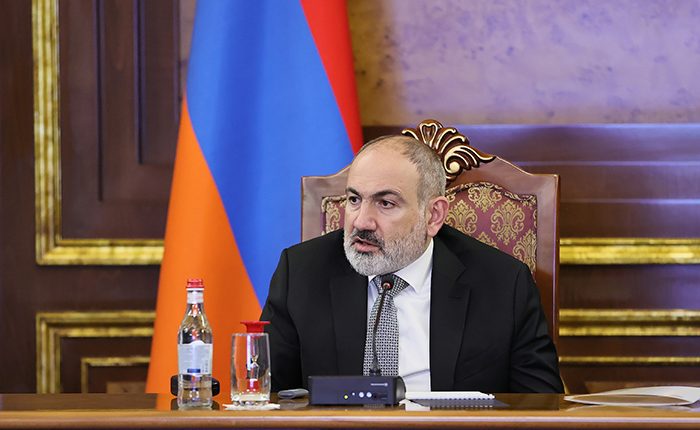YEREVAN — Prime Minister Nikol Pashinyan on Thursday rejected Azerbaijan’s continuing demands for legislative changes in Armenia and said that Baku may be planning large-scale military aggression against his country.
Pashinyan complained that despite his readiness for compromise, the Azerbaijani leadership is pursuing a “policy of military coercion” in an effort to clinch more Armenian territory and other concessions from Yerevan. He said that it is reluctant to delimit the long border between the two states where four Armenian soldiers were killed in an Azerbaijani ceasefire violation on Tuesday.
“Our analysis shows that there may be one reason for this and that reason may be, for example, the launch of military operations at some sections of the border with the prospect of turning the military escalation into a full-scale war against Armenia,” he said during a weekly cabinet meeting in Yerevan.
Pashinyan went on to reject Azerbaijani statements regarding the Armenian constitution and other legislative acts, saying that they constitute a violation of Armenia’s sovereignty and interference in its internal affairs.
Pashinyan stated that during the two countries peace talks and written exchanges last year the two sides agreed to make sure that they “cannot refer to their respective laws to refuse to comply with any provisions of the peace treaty.”
“Therefore, there are no legal provisions in Armenia that prevent the implementation of the peace treaty,” he said.
According to Pashinyan Azerbaijan continues to use threatening rhetoric in connection with the reforms of Armenian Armed Forces and the purchase of arms and military equipment.
“But as I said on January 28, on Army Day, having a strong and combat-ready army is a legitimate right of any country. Armenia recognizes the territorial integrity of all neighboring countries and has no targets outside its borders,” Pashinyan said.
He noted that legitimacy is an important component for Armenia’s security. “In the security area, Armenia has only legitimate goals, namely the protection of its internationally recognized borders,” he said.










